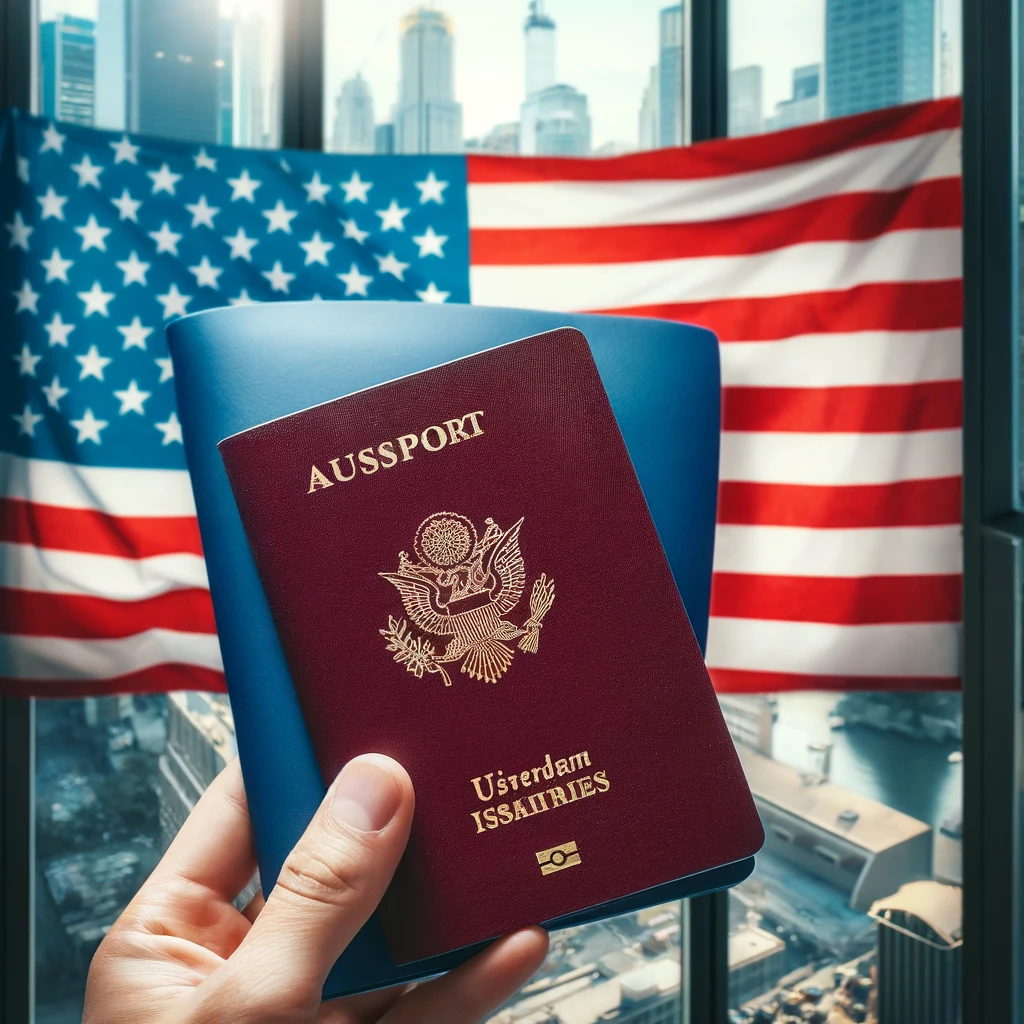We get it. The thrill of travel can be intoxicating—the new destinations, different cultures, unique experiences. But there’s no denying that constant movement comes with a heavy dose of logistics, and after a while, that burden can become exhausting. For some, it’s the excitement of the unknown that keeps the fire burning; for others, it’s the need to settle into a routine. Either way, we all end up asking the same question: Can you travel for too long?
The Thrill vs. The Grind
When we embarked on our journey as digital nomads, we were energized by the idea of waking up in a new place every few days. The excitement of discovery kept us moving forward, and the endless possibilities seemed to make the world our playground. There were days we stood in awe of breathtaking landscapes or immersed ourselves in vibrant local cultures, and those experiences gave us a kind of fulfillment we hadn’t found in our old routines.
But that’s only part of the story.
What doesn’t get as much attention is the constant mental checklist running in the background. Navigating travel visas, coordinating accommodations, managing your work remotely, figuring out local transportation—it’s a never-ending cycle that can wear you down. Sure, it’s not the kind of “burnout” that comes from being tied to a desk, but it’s still draining. Constantly having one eye on what’s next—where to go, what to book, what time to check out—can take a toll, no matter how exciting the destination.
Risks and Rewards
There are highs and lows with every lifestyle choice, and travel is no different. There’s a unique set of risks: missing flights, health issues in foreign countries, financial instability, and the occasional feeling of being lost (physically and emotionally). Sometimes it feels like you’re throwing caution to the wind, and that can be both exhilarating and stressful.
The rewards, though, often outweigh the risks. Those “wow” moments—a serene sunrise in a remote location, a meaningful connection with a local, or the personal growth that comes with adapting to the unfamiliar—are the experiences that fuel the desire to keep going. These are the moments that remind you why you chose this lifestyle in the first place.
No Escape From the Grind
Let’s be honest: no matter what you choose to do with your time, there’s no escaping the grind. Whether you’re sitting at a desk from 9 to 5 or booking your next flight at 2 AM while trying to adjust to a new time zone, there’s always a balance to be maintained. The logistics of long-term travel might seem different from those of a traditional lifestyle, but they’re there all the same.
What we’ve learned is that the key lies in acceptance. No matter how thrilling the adventure, or how mundane the task, it’s all part of the bigger picture. You can’t avoid the hassle that comes with continuous movement, but you can guide it toward the experiences you want to have.
Vision and Growth
Every long-term traveler has to face the reality that this lifestyle isn’t just a series of Instagrammable moments. It’s also a process of personal growth. The challenges—whether logistical, emotional, or financial—shape you as much as the amazing experiences do. With every new country, every new hurdle, there’s an opportunity to learn and grow.
For us, that growth is tied to our vision for the future. It’s not just about seeing the world; it’s about carving out a lifestyle that aligns with our values and ambitions. Each new place brings us closer to that vision, even if it’s through unexpected detours or moments of frustration.
The Balancing Act
So, can you travel for too long? Maybe. But we think the real question is: Can you find a way to balance the excitement of exploration with the challenges of constant movement? For us, the answer is yes, but it requires a conscious effort to stay focused on our goals. Sometimes, that means slowing down, taking breaks, or even revisiting familiar places to recharge.
Ultimately, travel is what you make of it. If you embrace the ups and downs, the risks and rewards, and learn to navigate the logistics with an open mind, the journey can be as fulfilling as you hoped—just don’t forget that growth and vision are the real destinations.
Navigating the Rough Patches
For many long-term travelers, there comes a time when the excitement begins to fade. The novelty of new places becomes routine, and the logistics start to feel more like a burden than a part of the experience. This is a common phase that we’ve experienced firsthand.
At this point, some choose to stop, settle down for a while, or shift their focus to something different—perhaps a project, a job, or even a community that feels like home for a period. Others, like us, take a more fluid approach. We remind ourselves that the rough patches are temporary. The challenges of long-term travel can, with time, reveal new aspects of ourselves we didn’t know existed.
It’s about adapting to the ebb and flow of energy and motivation. Some days, you’re the adventurer ready to conquer a new city or hike a new trail. Other days, you might want nothing more than to sit in a quiet café, reflect on the journey, and catch up on the practical aspects of life, like taxes or figuring out how to get your dog’s vaccinations updated in a foreign country (speaking from experience here!).
Guided by Experience
One thing we’ve learned is that every experience, good or bad, contributes to a larger tapestry of growth. The ups are easy to enjoy—those postcard moments that make you stop and feel grateful for the lifestyle you’ve chosen. The downs, however, often provide the biggest learning opportunities. It’s through overcoming challenges that you sharpen your problem-solving skills, build resilience, and gain a deeper understanding of what you truly want from life.
We’ve come to embrace the unpredictability of travel as part of the adventure. Yes, it’s tiring to be constantly on the move, but it’s also rewarding to know that we’re pushing ourselves to adapt, to grow, and to keep pursuing the vision that initially inspired us to hit the road.
Finding Joy in the Journey
There’s a common misconception that constant travel is glamorous. We won’t deny that there are incredible moments, but much of it is about managing expectations and finding joy in the small things.
One of the unexpected joys we’ve discovered is the value of routine, even on the road. Simple routines—whether it’s finding a local coffee shop to work from or walking our beagle, Sniffy, in a new park—provide a sense of normalcy amidst the chaos of travel. It’s these small, familiar moments that help us stay grounded and prevent burnout from creeping in.
Creating Freedom with Purpose
Ultimately, long-term travel isn’t just about seeing new places. For us, it’s about creating the freedom to live life on our own terms, while always being guided by a deeper sense of purpose. This lifestyle isn’t an escape from reality—it’s an intentional choice to shape our own path, with all the challenges and rewards that come with it.
We’ve learned to accept the logistical headaches and emotional ups and downs as part of the deal. What keeps us going is the sense that we’re continually moving toward a bigger goal—creating a life that’s rich with experiences, self-growth, and the ability to adapt.
Travel may not always be easy, but for us, the adventure, growth, and sense of freedom are worth every bit of the effort it requires.
Travel, like anything, has its risks and rewards. The logistics can be a drain, but they’re part of the journey. It’s the balance between excitement and effort, growth and challenge, that makes the experience worthwhile. So, can you travel for too long? Perhaps—but it’s all about how you approach the adventure and what you’re willing to learn along the way.
Because, in the end, it’s not just about the destination, but the vision you create for yourself as you travel the world, one step at a time.
It’s important to remember that travel isn’t a perfect escape. It’s not going to solve all your problems or offer an endless supply of joy without challenges. But what it does offer is the opportunity to break free from the routines and structures that may be holding you back, providing space for growth and reflection. Travel helps you learn to be adaptable, to roll with the punches, and to appreciate the small things in life that you might overlook when you’re too focused on the destination.
The longer you travel, the more you realize that it’s not about ticking off locations on a map—it’s about finding balance, connecting with the world around you, and growing as a person. For us, it’s been about cultivating a sense of purpose and guiding ourselves through new experiences with both open hearts and clear visions.
Yes, the logistics can be tiring. Yes, there are moments when we think about slowing down, finding a base for a while, and giving ourselves a break from the grind. But those moments are often fleeting, quickly replaced by the thrill of what’s next on the horizon. Because at the end of the day, it’s not the challenges that define the journey, it’s how you navigate them and what you learn from each one that counts.
So, while the answer to “Can you travel for too long?” might depend on your personal tolerance for uncertainty and how well you handle logistics, we believe that with the right mindset, travel can be a lifelong pursuit. It’s not about how long you travel, but how intentionally you live while doing it. As long as you continue to embrace both the joys and the challenges, the rewards of the journey will keep coming.




